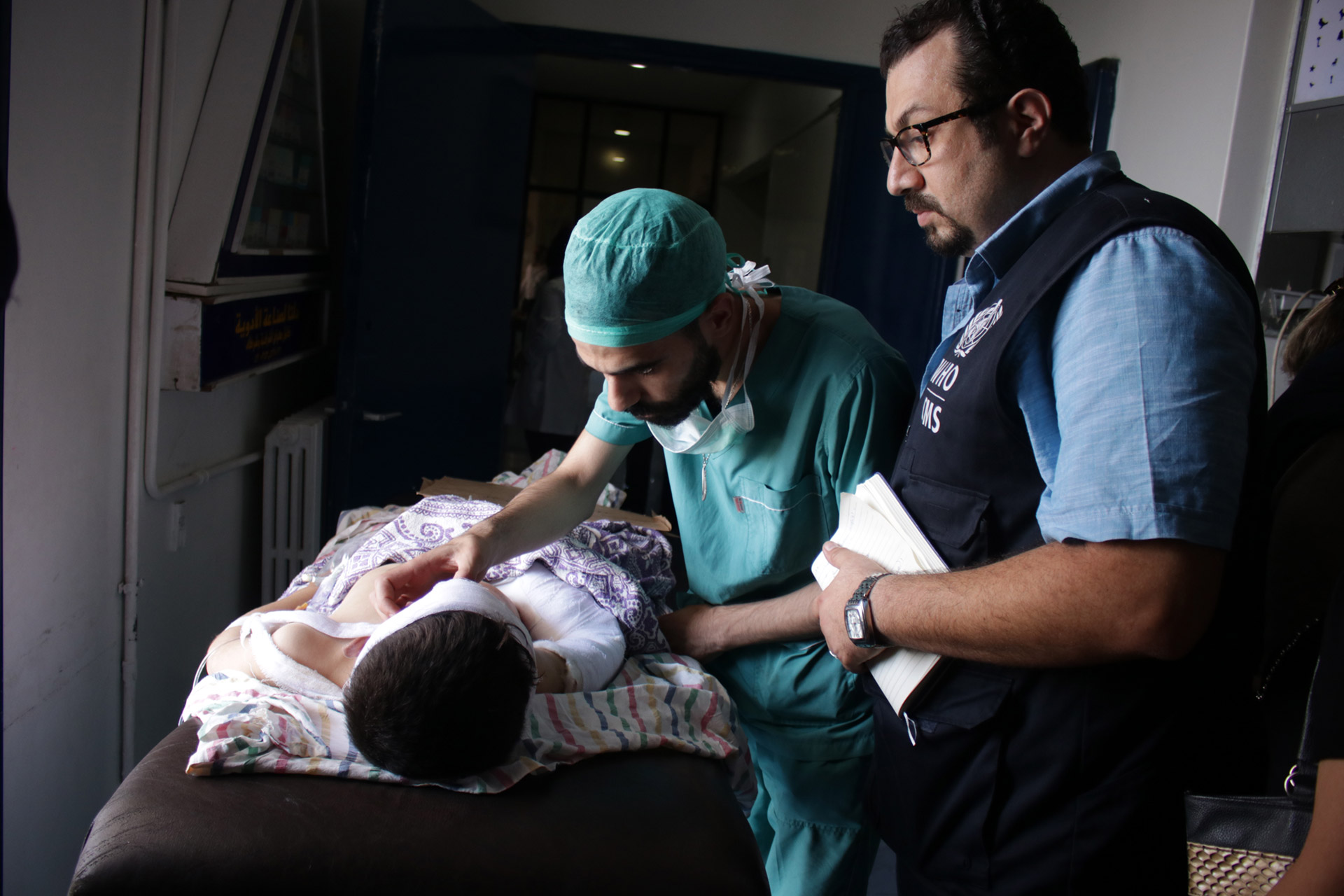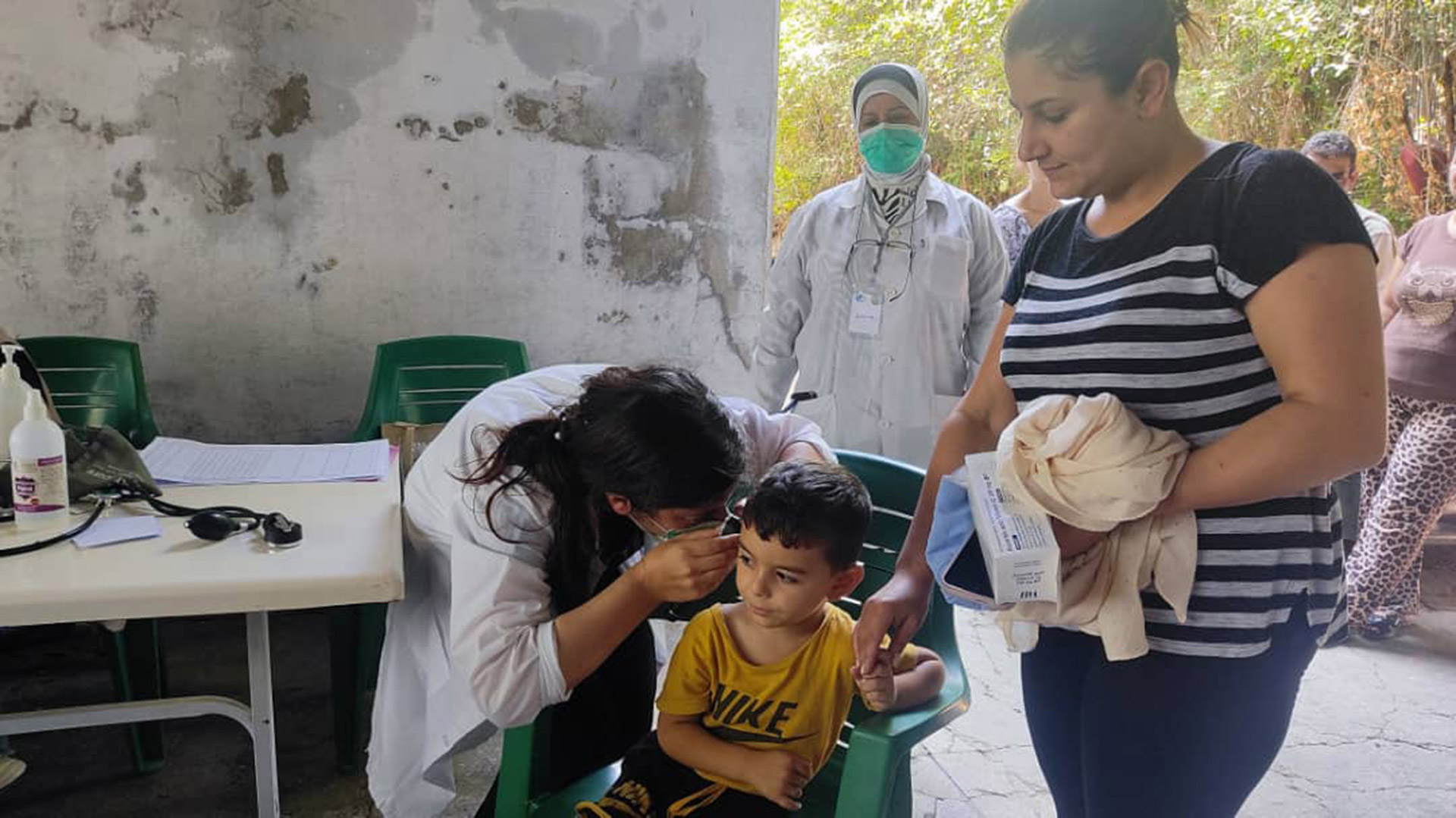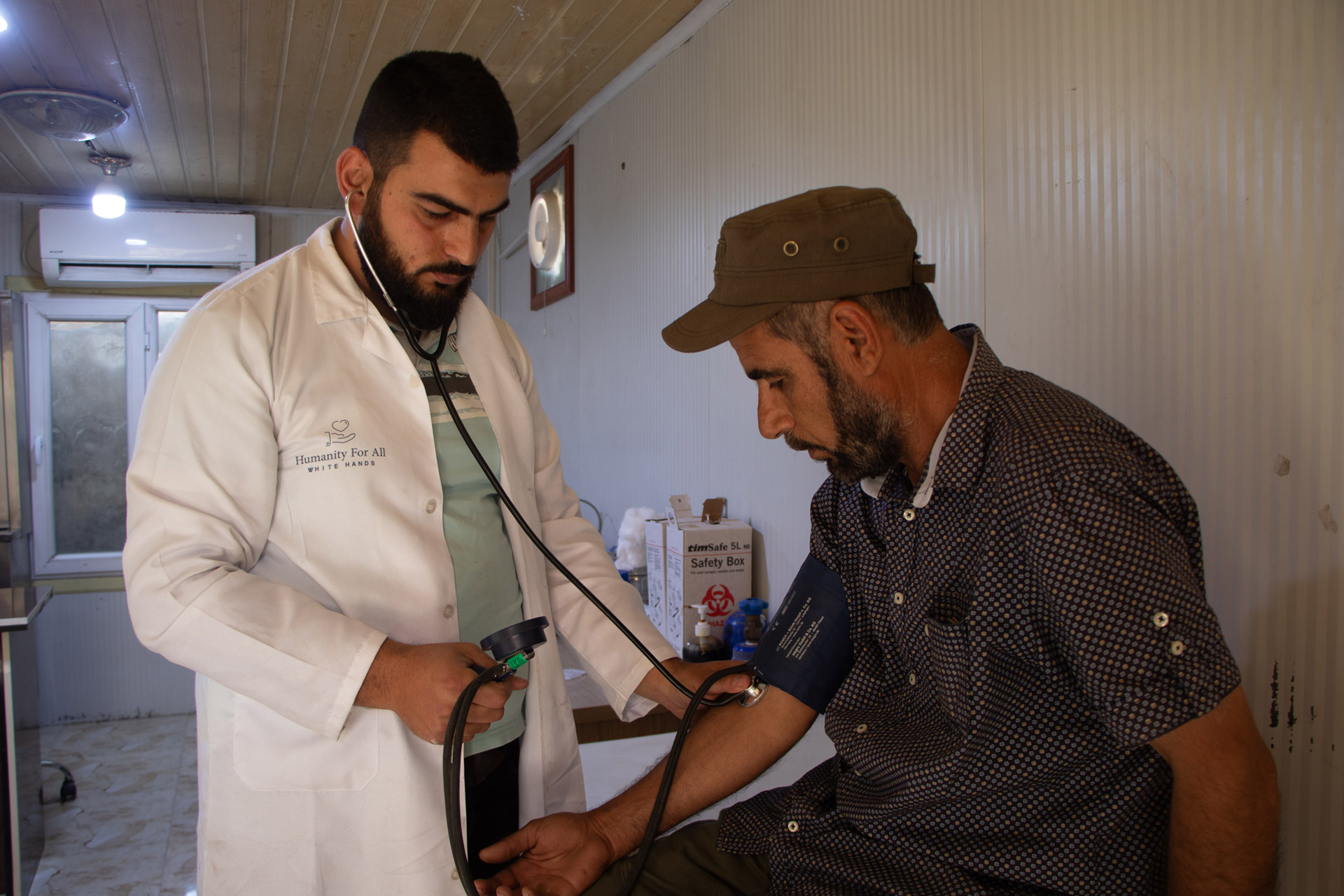19 August 2025, Syrian Arab Republic – On World Humanitarian Day, we pause to honour those who, in times of crisis, step forward to help the millions whose lives hang in the balance. In Syria, where more than 14 years of conflict have left the health system fragile and overstretched, it is a responsibility health workers and communities carry every day.
So far this year, the World Health Organization (WHO) has confirmed 31 attacks on health care in Syria. Health facilities, ambulances, medical supplies and health workers have all been targeted. Five health workers have been killed while serving their communities. These are the conditions health workers face as they seek to support their communities.
“Every effort we make helps ensure no one is left behind.”
For Malak Alzghayer, a pharmacist working in a WHO warehouse, the job is about more than logistics.
“In the context of Syria, the need for medical and humanitarian aid is never ending. For me, work is not a job. It is a duty to preserve health and bring hope to those who need it most. Every effort we make helps ensure that vulnerable communities have access to health care services and that no one is left behind.”
 Malak at WHO’s warehouse facility in Rural Damascus, ensuring medicines reach health partners across the region. Photo credit: WHO
Malak at WHO’s warehouse facility in Rural Damascus, ensuring medicines reach health partners across the region. Photo credit: WHO
In Aleppo, WHO sub–office head Dr Fares Kady remembers a night on which the university hospital had been attacked, and doctors could not reach their patients.
“In that moment, I felt powerless. But through coordination we found a way for a surgeon to travel in an ambulance. Minutes later, operations resumed, and lives were saved. I have witnessed how a single medicine, a vaccine, a piece of advice or even a phone call can change – and sometimes save – a life. That is why I remain convinced that our work is worth every effort and every sacrifice.”
 Dr Fares Kady speaks with a surgical resident at Aleppo University Hospital as he checks on a child injured by unexploded ordnance. Photo credit: WHO
Dr Fares Kady speaks with a surgical resident at Aleppo University Hospital as he checks on a child injured by unexploded ordnance. Photo credit: WHO
At Ehthimalat Health Centre in northern Aleppo, doctors and nurses are reminded each day of why their work matters. Recently, Dr Aisha Abdulwahab Al–Ali treated 7–year–old Fatima, who came in with a high fever and persistent cough.
“Every day we meet children like Fatima whose families cannot afford private clinics or to travel long distances for care. Being able to examine her, give the right treatment and see her start to recover is what keeps us going. Even in the hardest times, our role is to protect health and give families a sense of hope.”
 Dr Aisha Abdulwahab Al–Ali examines young Fatima at Ehthimalat Health Centre, Aleppo. Photo credit: WHO
Dr Aisha Abdulwahab Al–Ali examines young Fatima at Ehthimalat Health Centre, Aleppo. Photo credit: WHO
For Dr Khairiya Hijazi, a paediatrician working with WHO’s partner Ayadina NGO in Lattakia, it is about easing suffering even when resources are limited.
“The importance of this work – whether in war, earthquake or wildfire – is to provide health services that alleviate suffering while preserving dignity. Even if it’s something as simple as a follow–up check or medication, our goal is always to ease people’s pain.”
 Dr Khairiya Hijazi examines a young boy during a consultation at a mobile health point in Lattakia, where she supports families with pediatric care. Photo: WHO
Dr Khairiya Hijazi examines a young boy during a consultation at a mobile health point in Lattakia, where she supports families with pediatric care. Photo: WHO
Abdul Muneem Mahmoud Al–Dibo, a supervising nurse at a hospital in Aleppo, describes how even routine checks can prevent greater harm.
“A patient came to us with a severe headache. When we measured his blood pressure, it turned out to be slightly high. I gave him advice on how to manage it. It may sound simple, but in difficult circumstances even basic follow–up and guidance can reassure people and protect them from future complications.”
 Abdul Muneem consulting with patients at Ehthimalat Health Centre, Aleppo. Photo: WHO
Abdul Muneem consulting with patients at Ehthimalat Health Centre, Aleppo. Photo: WHO
Acting for humanity
The voices of Malak, Dr Fares, Dr Aisha, Dr Khairiya, and Abdul Muneem reflect a common truth: Syria’s humanitarian crisis is not over, but neither is the determination of its people.
One of the world’s largest humanitarian crises persists. More than 16.7 million people inside Syria need urgent humanitarian health support. Around 7.4 million remain displaced, while over 4.5 million Syrian refugees live in neighbouring countries. Many still hope to return home – a reminder that strengthening health services in potential areas of return is essential.
People are seeking peace, stability and national unity. A functioning and safe health system is not only about care – it is about social cohesion, dignity and resilience. As the Syria moves towards recovery, it stands at a fragile crossroad.
This year’s World Humanitarian Day calls on us to #ActForHumanity: to protect humanitarian workers and civilians, to uphold international humanitarian law and to sustain the lifelines communities depend on.
As Dr Fares says: “First, we are not the heroes. People may expect us to hold a magic stick, but the real heroes are the communities themselves – people who live under bombardment, displacement and shortages, yet still insist on helping each other and on rebuilding their lives. Second, our greatest capital is the trust of communities. That trust is earned only when we remain faithful to humanitarian principles and committed to the communities we serve – in every setting, even in the most difficult conditions.”




